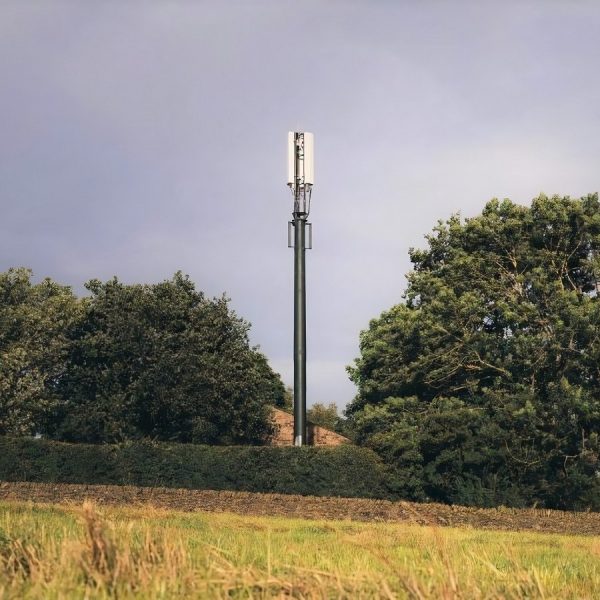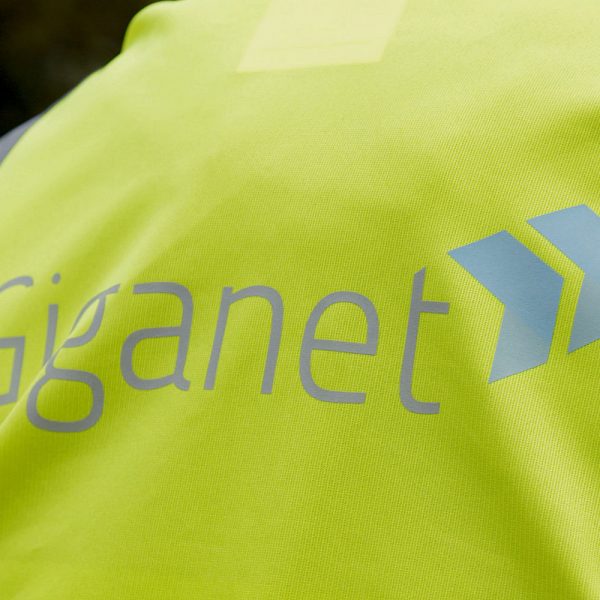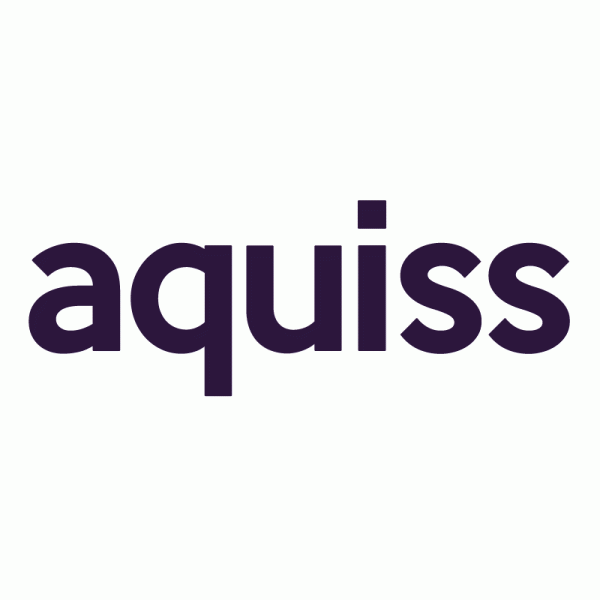Sponsored Links
UPDATE UK MPs Propose Action to Filter Internet Traffic and Stop Illegal P2P Cut-Offs
Posted: 16th Oct, 2009 By: MarkJ
The All Party Parliamentary Communications Group (apComms) has published its final report - 'Can we keep our hands off the net?' (.PDF) - following a lengthy inquiry into Internet traffic to assess regulation of UK ISPs. The topic covered a range of traffic issues from behavioural advertising ( i.e. Phorm ), illegal P2P file sharing and privacy to child abuse images and Internet neutrality and asked what role Government should play.
In one of our most recent surveys we asked readers who they thought was most responsible for online security and 86% felt it was down to each of us as individuals to manage our own systems, just 12% blamed it all on ISPs (here). It is surprising to see government MPs putting such a significant onus for tackling the problem upon ISPs, which do have some limited network controls (anti-virus filtering of emails etc.) but obviously cannot directly interfere with individual customer computers.
Happily, on the subject of illegal P2P file sharing legislation, it’s refreshing to see that not all government ministers are totally bonkers and have in this instance taken a stand against the ridiculous idea of disconnecting “suspected” illegal (civil offence?) downloader’s from their ISP. There is also a recognition that part of the problem has occurred because of content developers and their inability to adapt to new media and offer consumers the services they really want.
The issue of Deep Packet Inspection and personal privacy invading advertising systems has somewhat vanished off the radar since Phorm effectively lost a significant amount of support from UK ISPs such as TalkTalk , Virgin Media and BT . However the UK rules on this matter still leave the door open for something similar to return and therefore it is good to see calls for tighter controls and stronger education.
Quite apart from the issue itself, it is neither within the MP’s nor the IWF’s power to extend their system globally. Encouraging other countries to adopt a similar filter is one thing but we do not like the sound of one massive filter for all such content on the Internet, which could easily be abused or expanded by unscrupulous governments as a form of potential censorship.
The conclusion to the controversial debate about network neutrality appears to have been that no conclusion is necessary? Happily the issue of advertised broadband speeds, which surprised us by even being included under this topic, gets a stronger response.
We certainly agree that the advertising of broadband speeds can be misleading, especially with Mobile Broadband services, and welcome some of the proposals. However the idea of regulating for ISPs to advertise a minimum guaranteed speed would be incredibly difficult to get right.
Many factors can affect connection speeds and most are not within a provider’s direct control (such as poor home phone wiring), making predicting any kind of minimum speed guarantee - either overall or per line - incredibly difficult to achieve (are they all expected to advertise 0.5Mbps?). It’s also one thing to use a guarantee with expensive business services but quite another to try and enforce one upon cheaper consumer products.
UPDATE - 1:51pm
Comment from the IWF:
UPDATE - 17th October 2009:
Comment from Consumer Focus in regards to the privacy aspects of this report:
Respondents were particularly asked to concentrate on five specific issues:We recommend that interested readers download the full report and dredge through its 46 pages for themselves. It includes many interesting quotes from ISPs, Rights Holders, government ministers and more. If you don't have the time for that then here's a quick summary of the conclusions to each question.
1. Can we distinguish circumstances when ISPs should be forced to act to deal with some type of bad traffic? When should we insist that ISPs should not be forced into dealing with a problem, and that the solution must be found elsewhere?
2. Should the Government be intervening over behavioural advertising services, either to encourage or discourage their deployment; or is this entirely a matter for individual users, ISPs and websites?
3. Is there a need for new initiatives to deal with online privacy, and if so, what should be done?
4. Is the current global approach to dealing with child sexual abuse images working effectively? If not, then how should it be improved?
5. Who should be paying for the transmission of Internet traffic? Would it be appropriate to enshrine any of the various notions of Network Neutrality in statute?
Main Conclusion - Question 1
We recommend that UK ISPs, through Ofcom, ISPA or another appropriate organisation, immediately start the process of agreeing a voluntary code for detection of, and effective dealing with, malware infected machines in the UK. If this voluntary approach fails to yield results in a timely manner, then we further recommend that Ofcom unilaterally create such a code, and impose it upon the UK ISP industry on a statutory basis.
...
[On illegal file sharing] We conclude that much of the problem with illegal sharing of copyrighted material has been caused by the rightsholders, and the music industry in particular, being far too slow in getting their act together and making popular legal alternatives available.
We do not believe that disconnecting end users is in the slightest bit consistent with policies that attempt to promote eGovernment, and we recommend that this approach to dealing with illegal file-sharing should not be further considered.
We recommend that UK ISPs, through Ofcom, ISPA or another appropriate organisation, immediately start the process of agreeing a voluntary code for detection of, and effective dealing with, malware infected machines in the UK. If this voluntary approach fails to yield results in a timely manner, then we further recommend that Ofcom unilaterally create such a code, and impose it upon the UK ISP industry on a statutory basis.
...
[On illegal file sharing] We conclude that much of the problem with illegal sharing of copyrighted material has been caused by the rightsholders, and the music industry in particular, being far too slow in getting their act together and making popular legal alternatives available.
We do not believe that disconnecting end users is in the slightest bit consistent with policies that attempt to promote eGovernment, and we recommend that this approach to dealing with illegal file-sharing should not be further considered.
In one of our most recent surveys we asked readers who they thought was most responsible for online security and 86% felt it was down to each of us as individuals to manage our own systems, just 12% blamed it all on ISPs (here). It is surprising to see government MPs putting such a significant onus for tackling the problem upon ISPs, which do have some limited network controls (anti-virus filtering of emails etc.) but obviously cannot directly interfere with individual customer computers.
Happily, on the subject of illegal P2P file sharing legislation, it’s refreshing to see that not all government ministers are totally bonkers and have in this instance taken a stand against the ridiculous idea of disconnecting “suspected” illegal (civil offence?) downloader’s from their ISP. There is also a recognition that part of the problem has occurred because of content developers and their inability to adapt to new media and offer consumers the services they really want.
Main Conclusion - Question 2
We recommend that the Government review the existing legislation applying to behavioural advertising, and bring forward new rules as needed, to ensure that these systems are only operated on an explicit, informed, opt-in basis.
Main Conclusion - Question 3
We recommend that eSafety should be included in the core school curriculum, with appropriate topics being taught at Key Stages 1 through 4. We recommend that the Government establish a national coordinating body to ensure that eSafety messages and teaching remain up-to-date.
We recommend that the Government bring forward a Green Paper on Privacy, with a view to bringing forward a Privacy Bill in the next Parliament that sets out simply expressed, but far-reaching, protection for everyone’s privacy, in both the offline and online worlds.
We recommend that the Government review the existing legislation applying to behavioural advertising, and bring forward new rules as needed, to ensure that these systems are only operated on an explicit, informed, opt-in basis.
Main Conclusion - Question 3
We recommend that eSafety should be included in the core school curriculum, with appropriate topics being taught at Key Stages 1 through 4. We recommend that the Government establish a national coordinating body to ensure that eSafety messages and teaching remain up-to-date.
We recommend that the Government bring forward a Green Paper on Privacy, with a view to bringing forward a Privacy Bill in the next Parliament that sets out simply expressed, but far-reaching, protection for everyone’s privacy, in both the offline and online worlds.
The issue of Deep Packet Inspection and personal privacy invading advertising systems has somewhat vanished off the radar since Phorm effectively lost a significant amount of support from UK ISPs such as TalkTalk , Virgin Media and BT . However the UK rules on this matter still leave the door open for something similar to return and therefore it is good to see calls for tighter controls and stronger education.
Main Conclusion - Question 4
It seems quite clear from the evidence that we received that a great deal more could be done to promptly request ISPs to remove child sexual abuse image websites. The IWF are clearly doing a good job along these lines within the UK, but they tell us that they are unable to extend this activity to key countries such as the US and Russia.
We recommend that the Government, in consultation with the EU Commission, establish whether the Internet Watch Foundation (IWF) should extend its “notice and take-down” mechanisms to the whole world, and if not, work to establish such a global system.
It seems quite clear from the evidence that we received that a great deal more could be done to promptly request ISPs to remove child sexual abuse image websites. The IWF are clearly doing a good job along these lines within the UK, but they tell us that they are unable to extend this activity to key countries such as the US and Russia.
We recommend that the Government, in consultation with the EU Commission, establish whether the Internet Watch Foundation (IWF) should extend its “notice and take-down” mechanisms to the whole world, and if not, work to establish such a global system.
Quite apart from the issue itself, it is neither within the MP’s nor the IWF’s power to extend their system globally. Encouraging other countries to adopt a similar filter is one thing but we do not like the sound of one massive filter for all such content on the Internet, which could easily be abused or expanded by unscrupulous governments as a form of potential censorship.
Main Conclusion - Question 5
From the evidence we have received we are persuaded that in the UK, at present, “network neutrality” is being delivered by market mechanisms. However, we also believe that the evidence shows that this situation could change. Therefore, we recommend that Ofcom keep the issue of “network neutrality” under review and include a section in each annual report that indicates whether there are any signs of change.
...
Although we recognise that speeds can be affected by many different variables, we do not consider the current method of advertising broadband speeds to be acceptable. We also believe that ISPs could do more to help consumers with speed problems to address these issues, from improving the phone wiring within their houses, to selecting appropriate ADSL modems.
To that end, we believe that the way forward is to promote competition between ISPs on more than just price. Hence we recommend that Ofcom regulate to require ISPs to advertise a minimum guaranteed speed for broadband connections.
From the evidence we have received we are persuaded that in the UK, at present, “network neutrality” is being delivered by market mechanisms. However, we also believe that the evidence shows that this situation could change. Therefore, we recommend that Ofcom keep the issue of “network neutrality” under review and include a section in each annual report that indicates whether there are any signs of change.
...
Although we recognise that speeds can be affected by many different variables, we do not consider the current method of advertising broadband speeds to be acceptable. We also believe that ISPs could do more to help consumers with speed problems to address these issues, from improving the phone wiring within their houses, to selecting appropriate ADSL modems.
To that end, we believe that the way forward is to promote competition between ISPs on more than just price. Hence we recommend that Ofcom regulate to require ISPs to advertise a minimum guaranteed speed for broadband connections.
The conclusion to the controversial debate about network neutrality appears to have been that no conclusion is necessary? Happily the issue of advertised broadband speeds, which surprised us by even being included under this topic, gets a stronger response.
We certainly agree that the advertising of broadband speeds can be misleading, especially with Mobile Broadband services, and welcome some of the proposals. However the idea of regulating for ISPs to advertise a minimum guaranteed speed would be incredibly difficult to get right.
Many factors can affect connection speeds and most are not within a provider’s direct control (such as poor home phone wiring), making predicting any kind of minimum speed guarantee - either overall or per line - incredibly difficult to achieve (are they all expected to advertise 0.5Mbps?). It’s also one thing to use a guarantee with expensive business services but quite another to try and enforce one upon cheaper consumer products.
UPDATE - 1:51pm
Comment from the IWF:
Sarah Robertson, IWF Director of Communications, said:
"Our core role is as the UK body for the removal of child sexual abuse images when they are hosted in this country. We’ve issued more than 25 notices so far this year to alert UK hosts and ISPs that their services are being abused for the hosting of these images. Indeed, this is why we were founded.
It is this area of our work that the Inquiry focussed on: their key aim, as ours, is the removal at source of the images. This happens very quickly in the UK but takes longer around the world. Therefore, the blocklist should ideally be a temporary measure to disrupt access and protect users in the short period before the hosting country takes action under its own laws.
The apComms recommendations appear to recognise the fact that this sort of removal, or notice and takedown, scheme may be a model worthy of exporting and could have a significant impact on the longevity of child sexual abuse content on the internet. Indeed, if removal was immediate on a global level the need for blocking would decrease."
"Our core role is as the UK body for the removal of child sexual abuse images when they are hosted in this country. We’ve issued more than 25 notices so far this year to alert UK hosts and ISPs that their services are being abused for the hosting of these images. Indeed, this is why we were founded.
It is this area of our work that the Inquiry focussed on: their key aim, as ours, is the removal at source of the images. This happens very quickly in the UK but takes longer around the world. Therefore, the blocklist should ideally be a temporary measure to disrupt access and protect users in the short period before the hosting country takes action under its own laws.
The apComms recommendations appear to recognise the fact that this sort of removal, or notice and takedown, scheme may be a model worthy of exporting and could have a significant impact on the longevity of child sexual abuse content on the internet. Indeed, if removal was immediate on a global level the need for blocking would decrease."
UPDATE - 17th October 2009:
Comment from Consumer Focus in regards to the privacy aspects of this report:
Linda Weatherhead, digital rights expert, Consumer Focus, said:
"If implemented, these recommendations would give people control of their own information. If our personal information is being used then we should know about it and give explicit consent first.
Privacy has become devalued in the digital world as technology evolves faster than the rights of the people using it. A Privacy Act would put the UK in line with other countries such as Australia, Germany and Canada."
"If implemented, these recommendations would give people control of their own information. If our personal information is being used then we should know about it and give explicit consent first.
Privacy has become devalued in the digital world as technology evolves faster than the rights of the people using it. A Privacy Act would put the UK in line with other countries such as Australia, Germany and Canada."
Search ISP News
Search ISP Listings
Search ISP Reviews
Latest UK ISP News








Cheap BIG ISPs for 100Mbps+
150,000+ Customers | View More ISPs
Cheapest ISPs for 100Mbps+
Modest Availability | View More ISPs
Latest UK ISP News
Helpful ISP Guides and Tips
Sponsored Links
The Top 15 Category Tags
- FTTP (5515)
- BT (3514)
- Politics (2537)
- Openreach (2297)
- Business (2262)
- Building Digital UK (2244)
- FTTC (2043)
- Mobile Broadband (1973)
- Statistics (1788)
- 4G (1664)
- Virgin Media (1619)
- Ofcom Regulation (1461)
- Fibre Optic (1395)
- Wireless Internet (1389)
- FTTH (1381)
Sponsored
Copyright © 1999 to Present - ISPreview.co.uk - All Rights Reserved - Terms , Privacy and Cookie Policy , Links , Website Rules

































